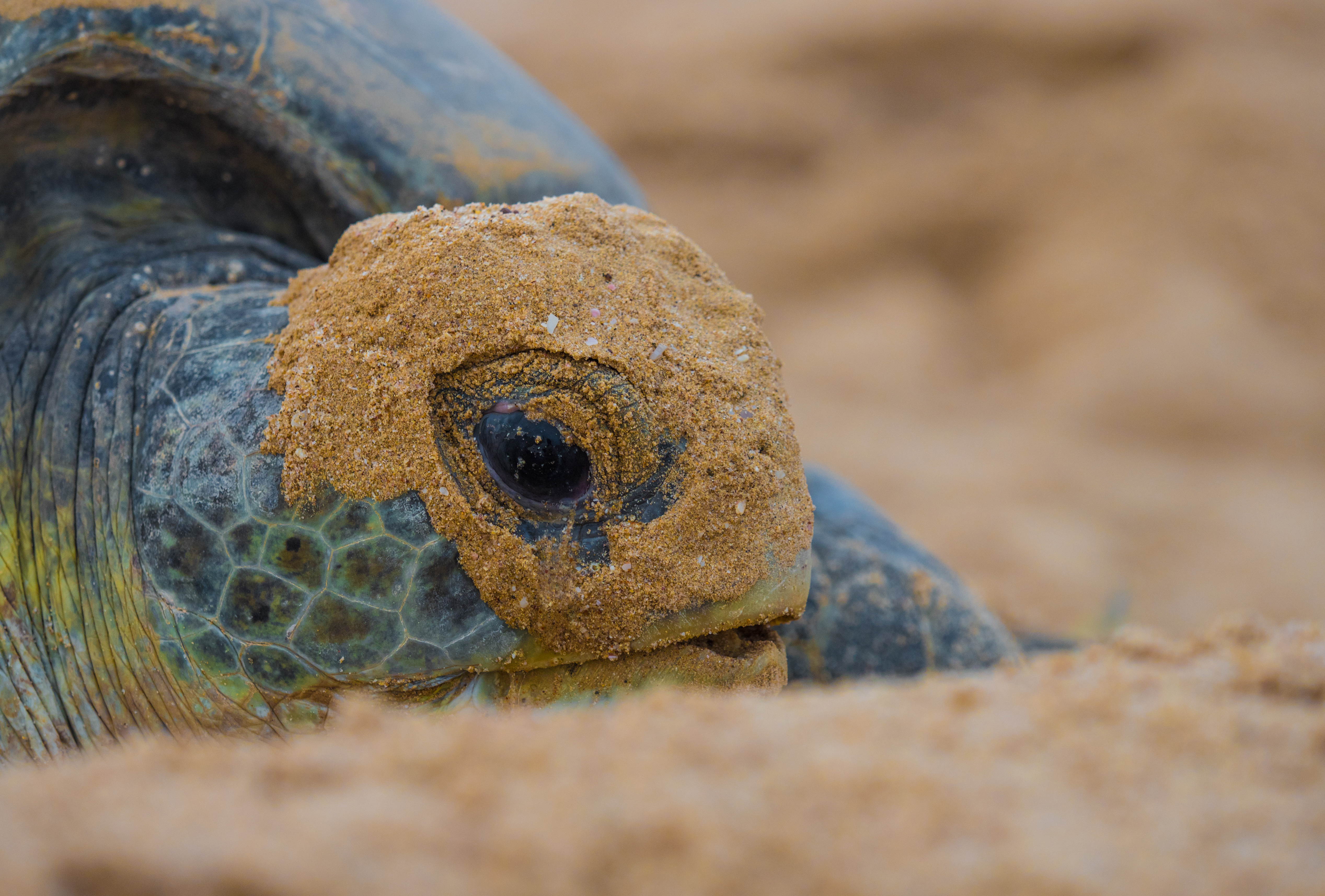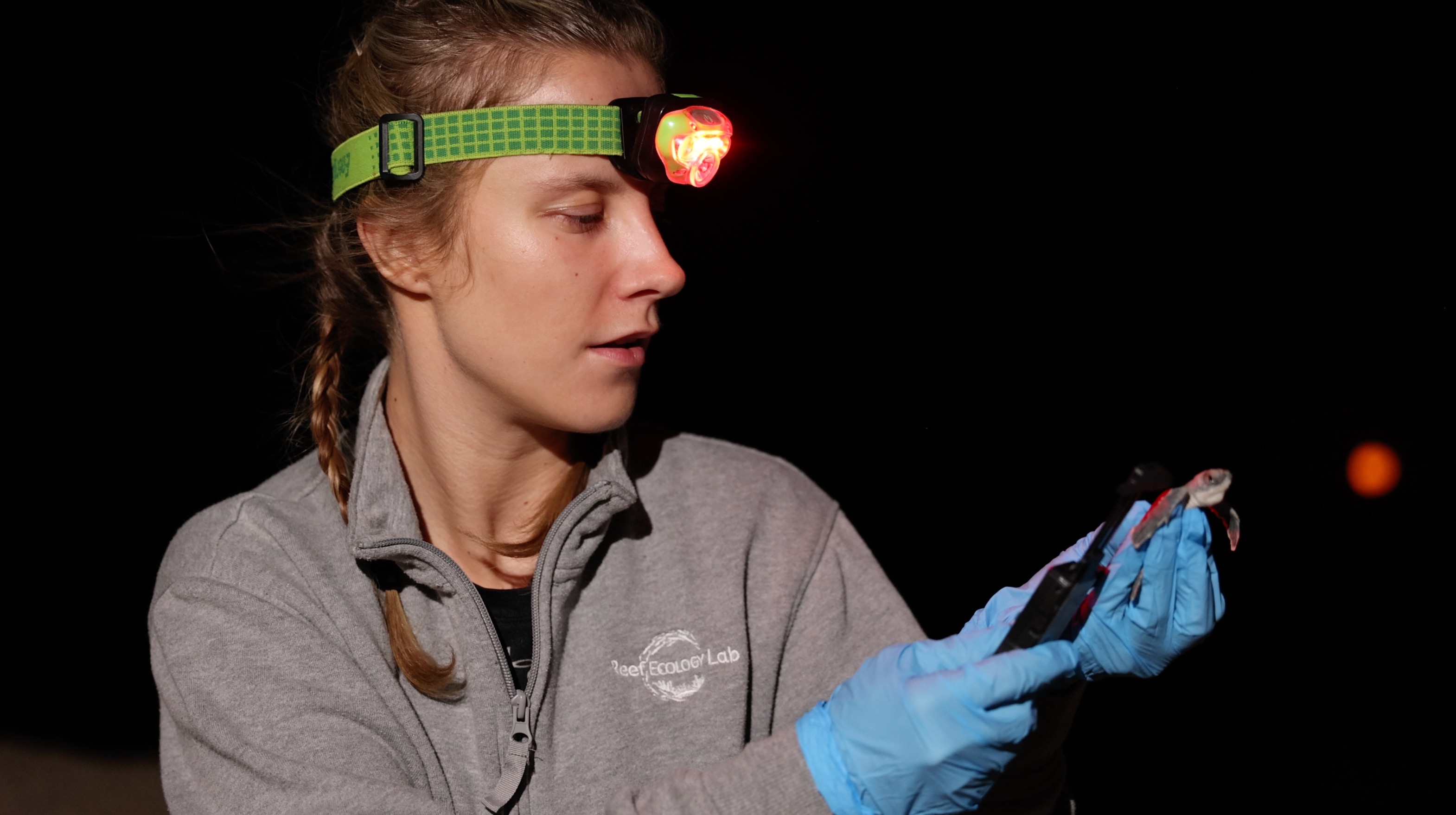Megafauna Ecology
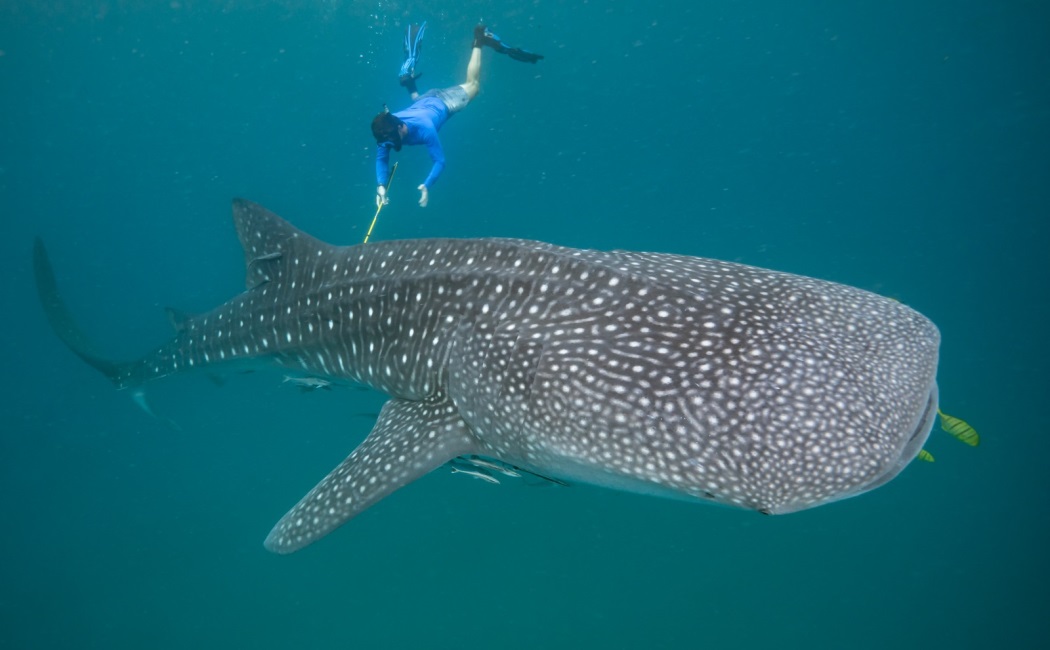
Research Highlight: “Movement ecology of Arabian pelagic predators”
Lead scientist: Collin Williams, PhD student
Collin's research utilizes satellite telemetry to investigate the space use and diving behavior of large pelagic fishes surrounding the Arabian Peninsula through case studies focused on yellowfin tuna, blue and striped marlin, silky sharks, and tiger sharks. He is particularly interested in how certain factors influence pelagic fish movements in the Arabian Seas Region, including ocean deoxygenation, elevated temperatures, human activities, and even the presence of certain bathymetric features. The primary aim of this research is to develop an improved understanding of pelagic fish movements in the Red Sea and surrounding waters that enables informed conservation actions to be established.
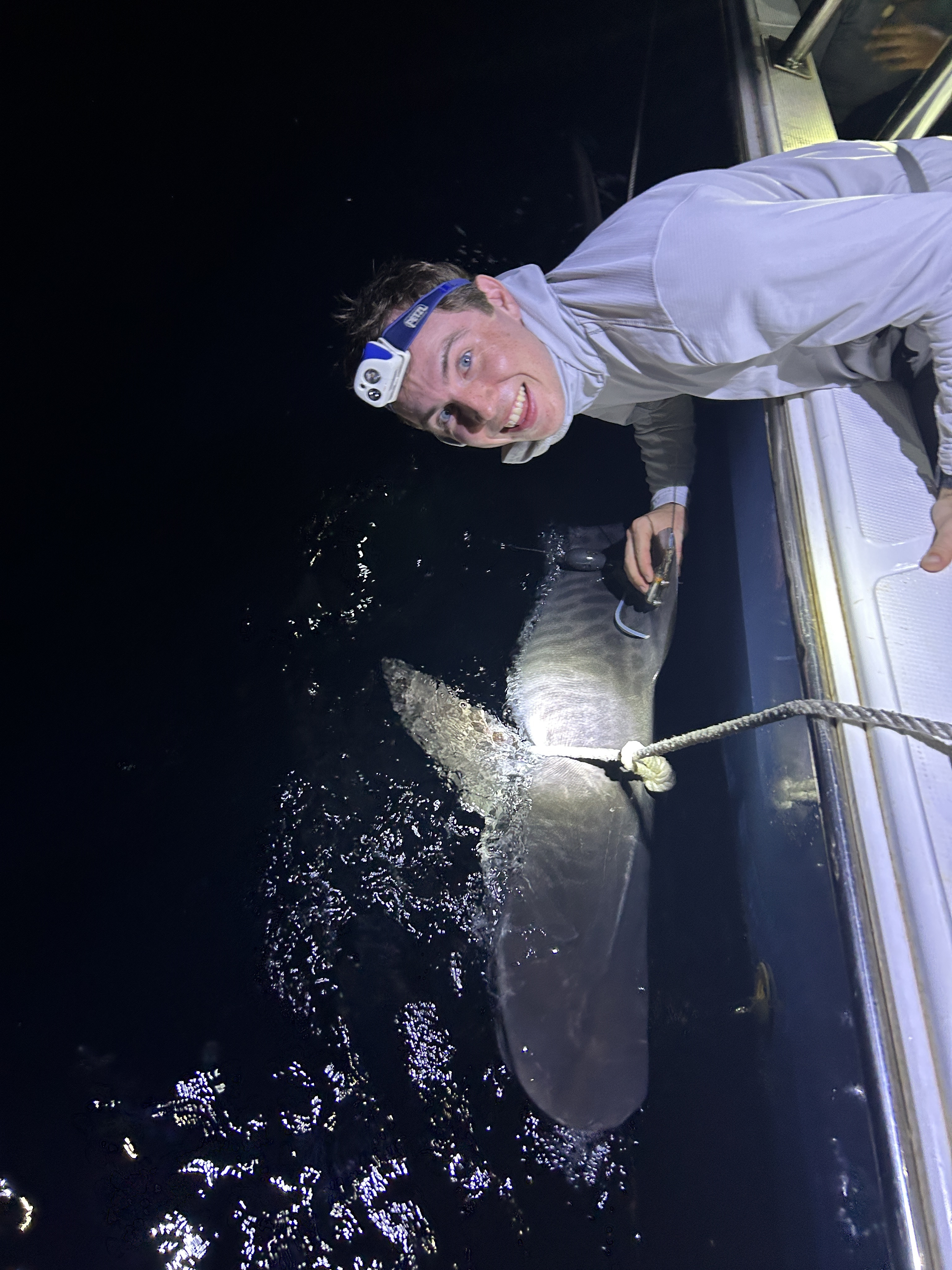
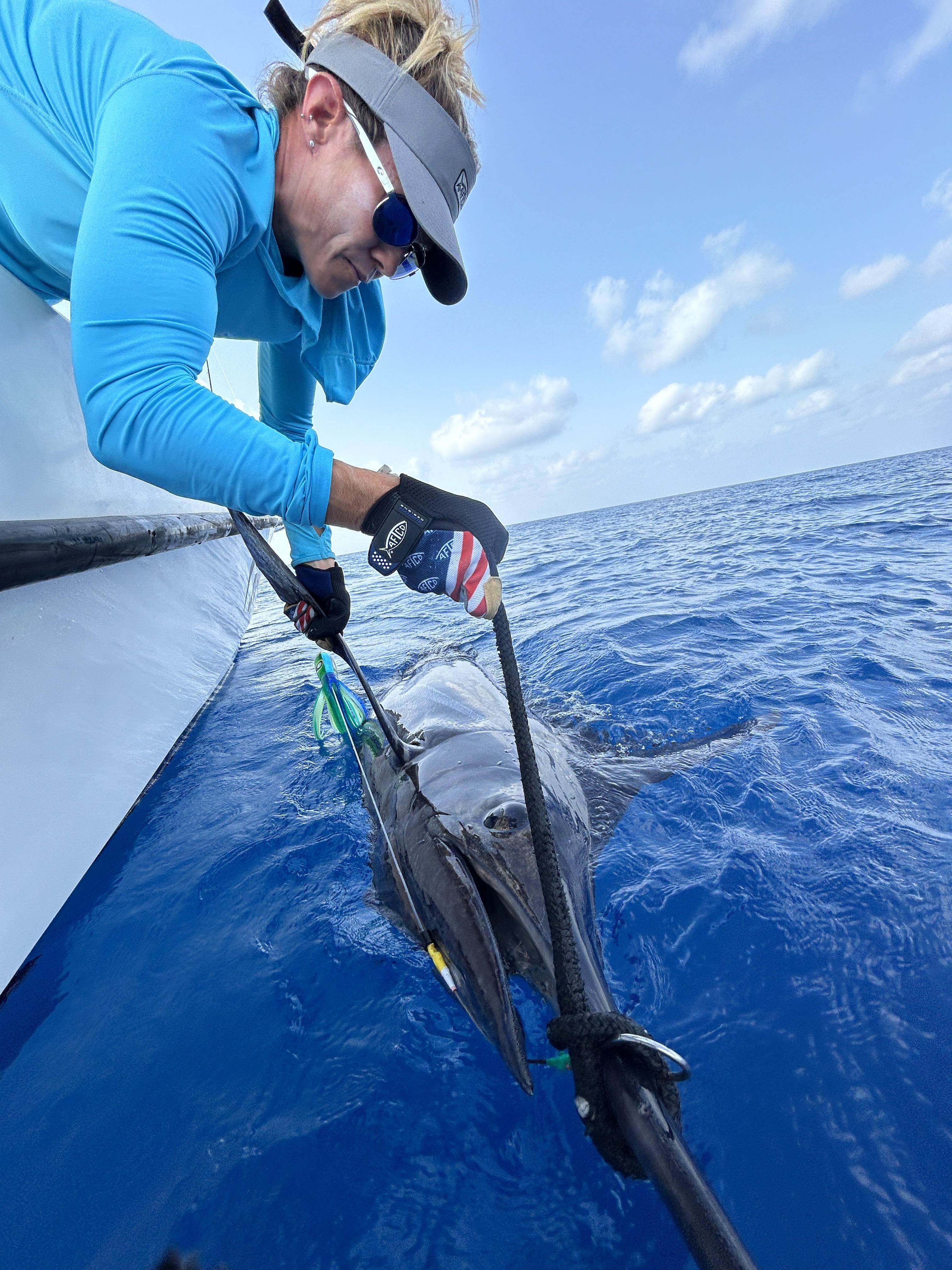
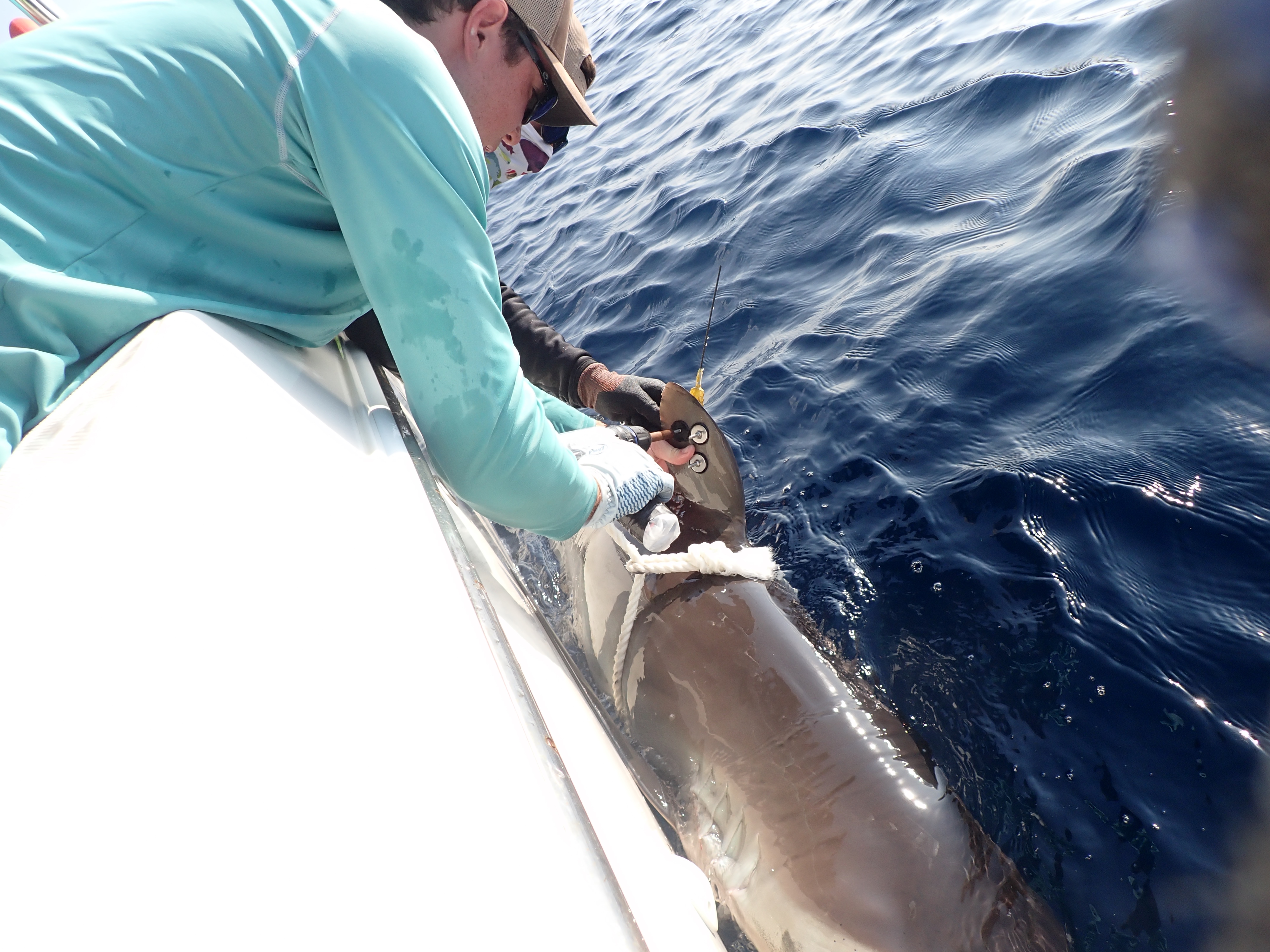
Research Highlight: “Characterization of a guitarfish nursery in the Saudi Arabian Red Sea and beyond"
Lead scientist: Eloise "Ellie" Richardson, PhD student
The halavi guitarfish (Glaucostegus halavi) is a moderately-sized Rhinopristiform batoid found throughout the western Indian Ocean, Red Sea, and Arabian Gulf. Despite its status as "Critically Endangered" according to the IUCN, significant gaps persist in our understanding of its life history and habitat. As a Ph.D. student in the Reef Ecology Lab, Ellie's research aims to help close this knowledge gap by focusing on a population of guitarfish residing in the first documented nursery ground in the central Red Sea. Through investigation of local-scale and broad-scale population genetics, the application of capture-mark-recapture techniques to infer life history data, and movement ecology projects, she hopes to offer valuable insights into the ecology of this species and therefore better support conservation efforts in the region.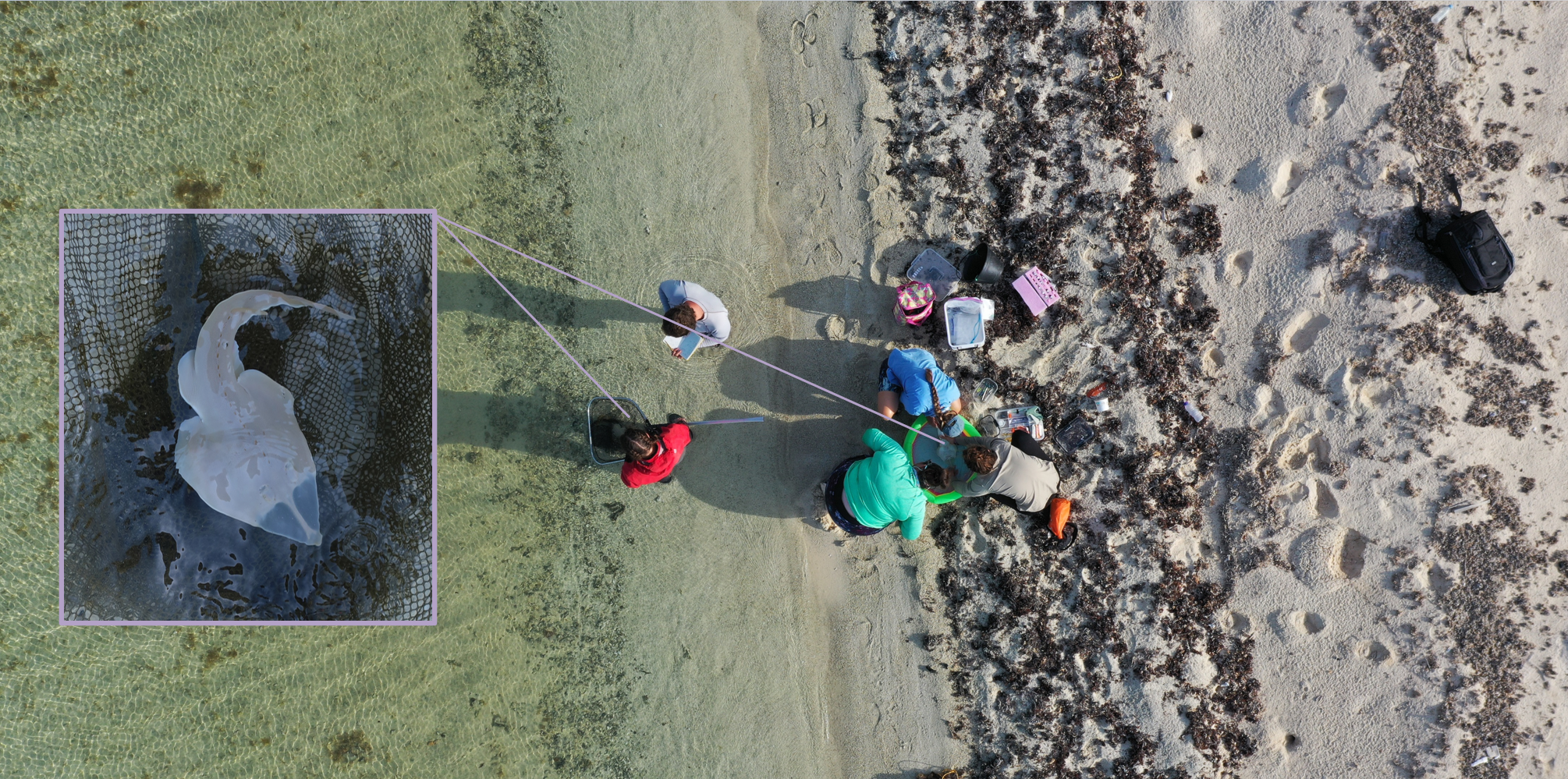
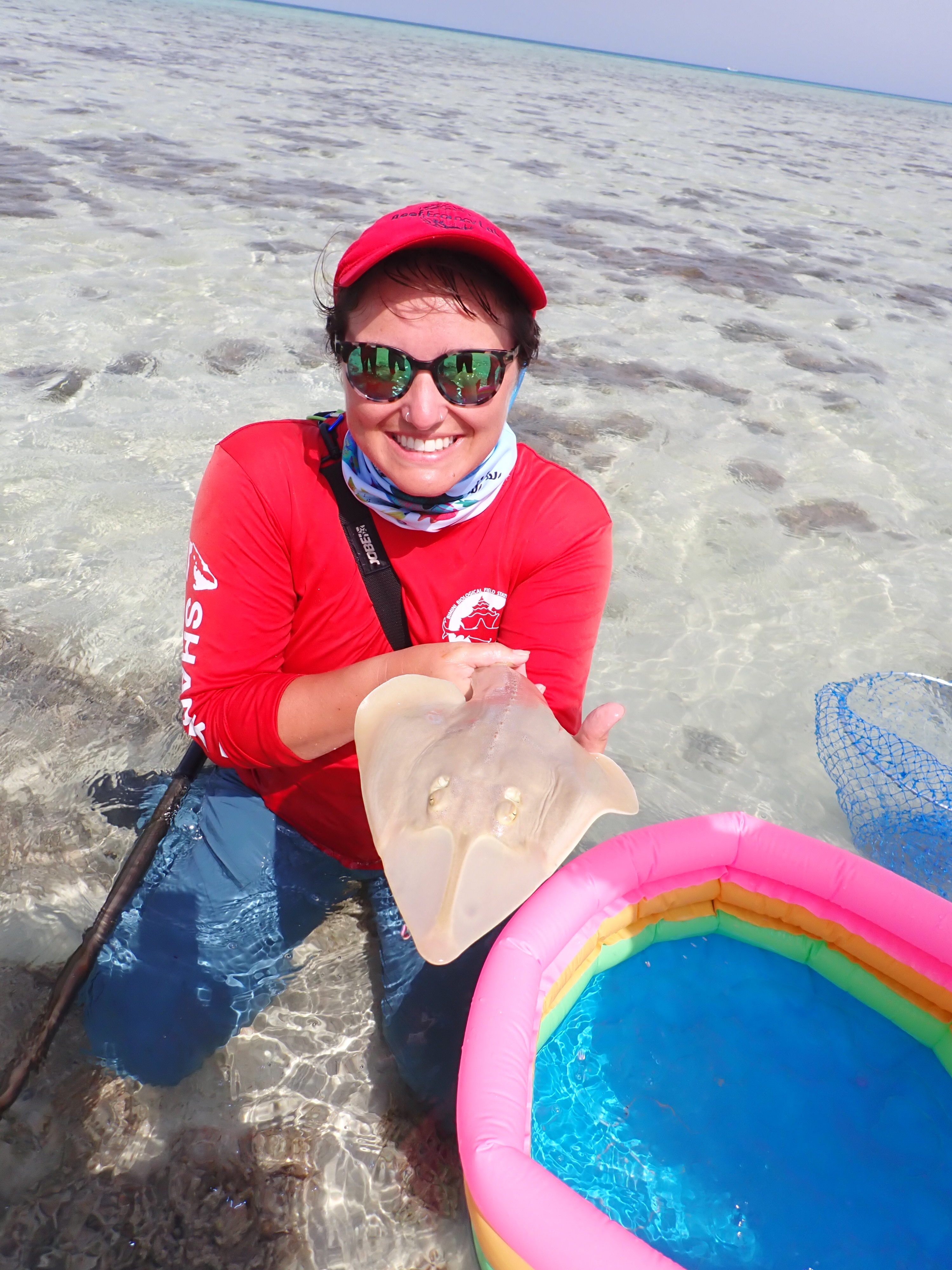
Research Highlight: “The influence of temperature on Red Sea turtle populations"
Lead scientist: Kirsty Scott, PhD student
Sea turtles display temperature-dependent sex determination where the incubation temperature of their nests dictates the sexual demographics of the population. Sea turtle populations on the Red Sea are already persisting at elevated incubation temperatures, close to or even breaching their supposed thermal limits. We aim to use this population to predict the fate of other sea turtle populations globally in the face of anthropogenic warming and unlock their ability to adapt to the warming rate if given sufficient time.
Research Highlight: “Environmental and biological factors hindering sea turtle hatchling success and survival"
Lead scientist: Mohammed Khayat, PhD student
these data gaps we will focus on: (1) assessing the environmental and biological factors that contribute to successful embryonic development and (2) causes of hatchling mortality post-emergence. The first will be accomplished by monitoring nest conditions including temperature, moisture, gas exchange, and assessing fertility of deposited eggs. Predation rates will be quantified, and the effect of light pollution measured to address impacts on newly emerged hatchlings. By understanding which factors most influence both embryonic development and recently emerged hatchlings, we can develop targeted conservation strategies.

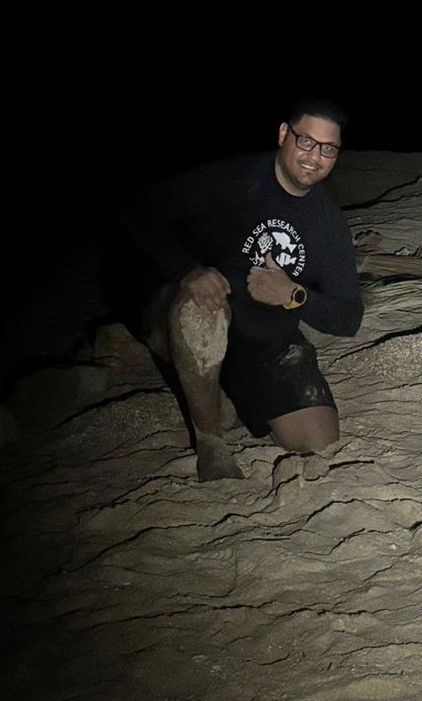
Research Highlight: “Linking ecophysiology and movement ecology of tiger sharks"
Lead scientist: Raquel Lubambo Ostrovski, PhD student
Tiger sharks (Galeocerdo cuvier) are one of the main apex predators throughout temperate and tropical marine ecosystems of the world. As a highly-adaptable species, individual tiger sharks display interesting dietary preferences, reproduction timing, immune composition, and other differential behaviors. My research takes a holistic approach to understanding tiger shark ecophysiology by investigating internal physiological patterns and exploring how these may help explain differential movement and other preferential behaviors. By examining fatty acid profiles, we can unlock insights into their diet and nutrition. Simultaneously, hormonal levels are great tools to investigate their reproductive stages, maturity, and likely even residency patterns. Such multidisciplinary research is needed to inform the conservation of these iconic apex predators.
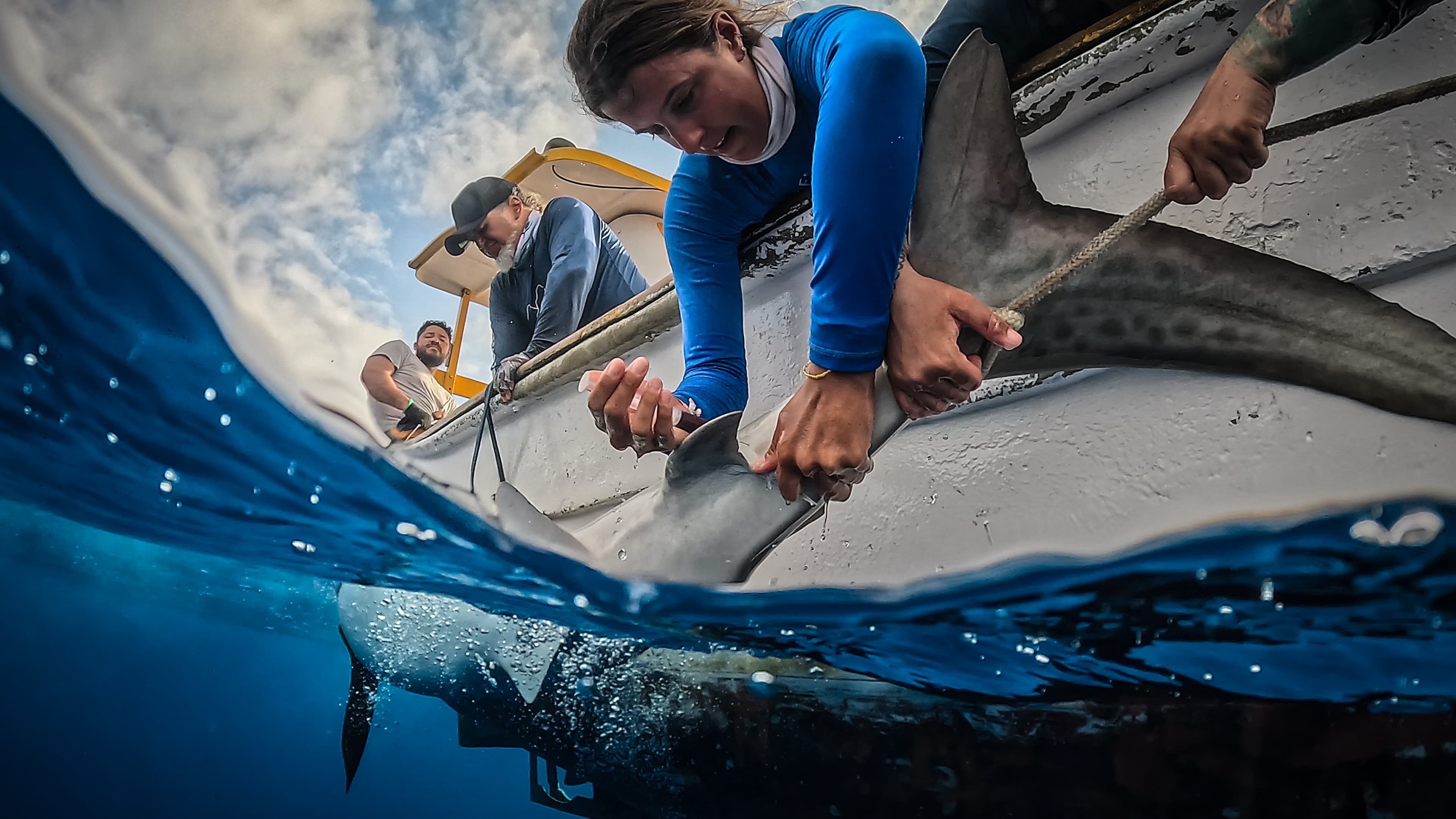
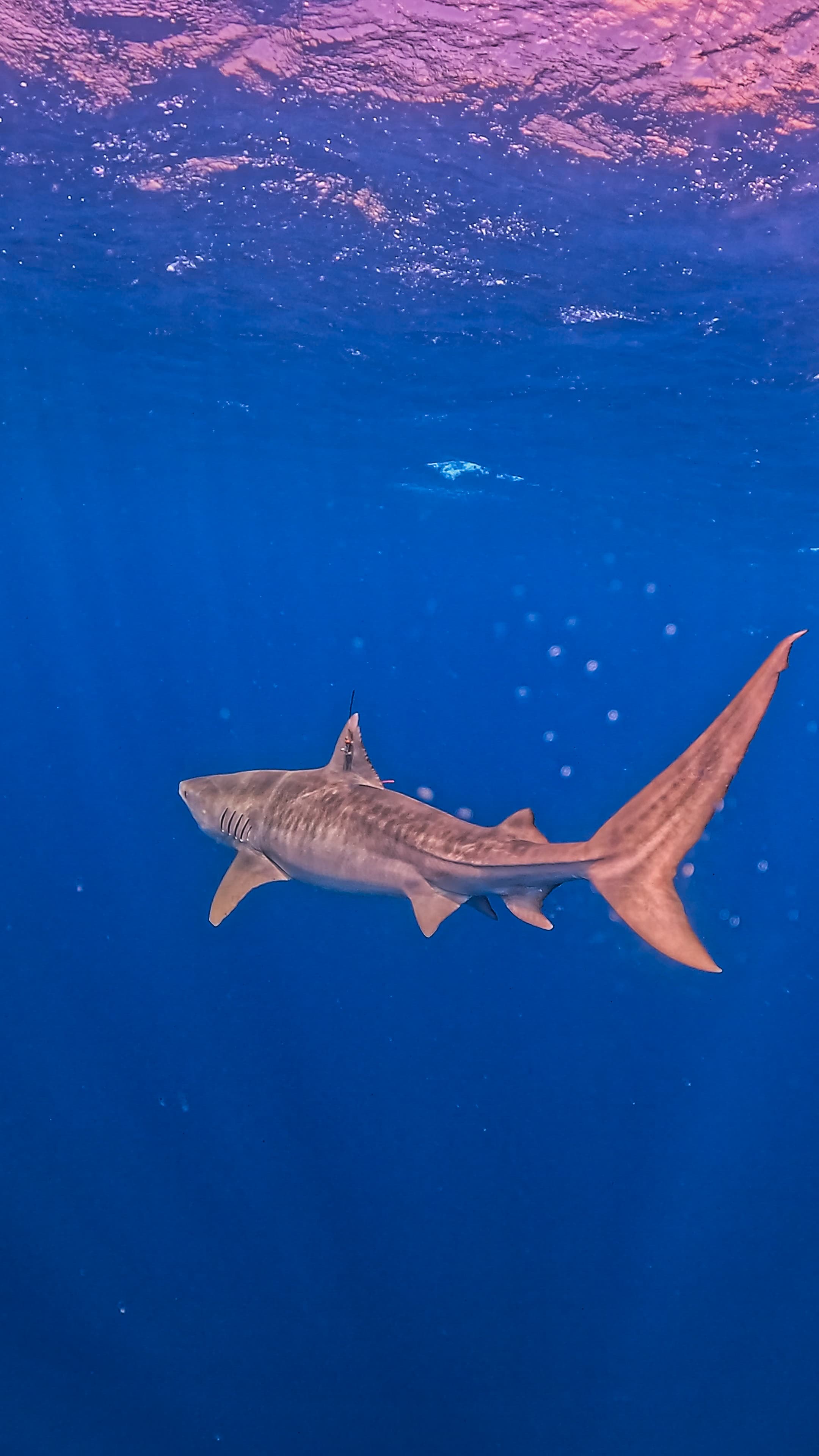
Research Highlight: “Investigating the habitat use of understudied seabird species in the Arabian Peninsula"
Lead scientist: Alexa Foster, PhD student
This project addresses knowledge gaps for priority seabird species identified in the PERSGA/GEF Regional Action Plan for Seabird Conservation: the White-eyed Gull (Larus leucophthalmus), Socotra Cormorant (Phalacrocorax nigrogularis), Jouanin’s Petrel (Bulweria fallax), and Persian Shearwater (Puffinus persicus). The aim of this research is to inform conservation management by investigating each species’ habitat use and ecological threats using biotelemetry and population monitoring.
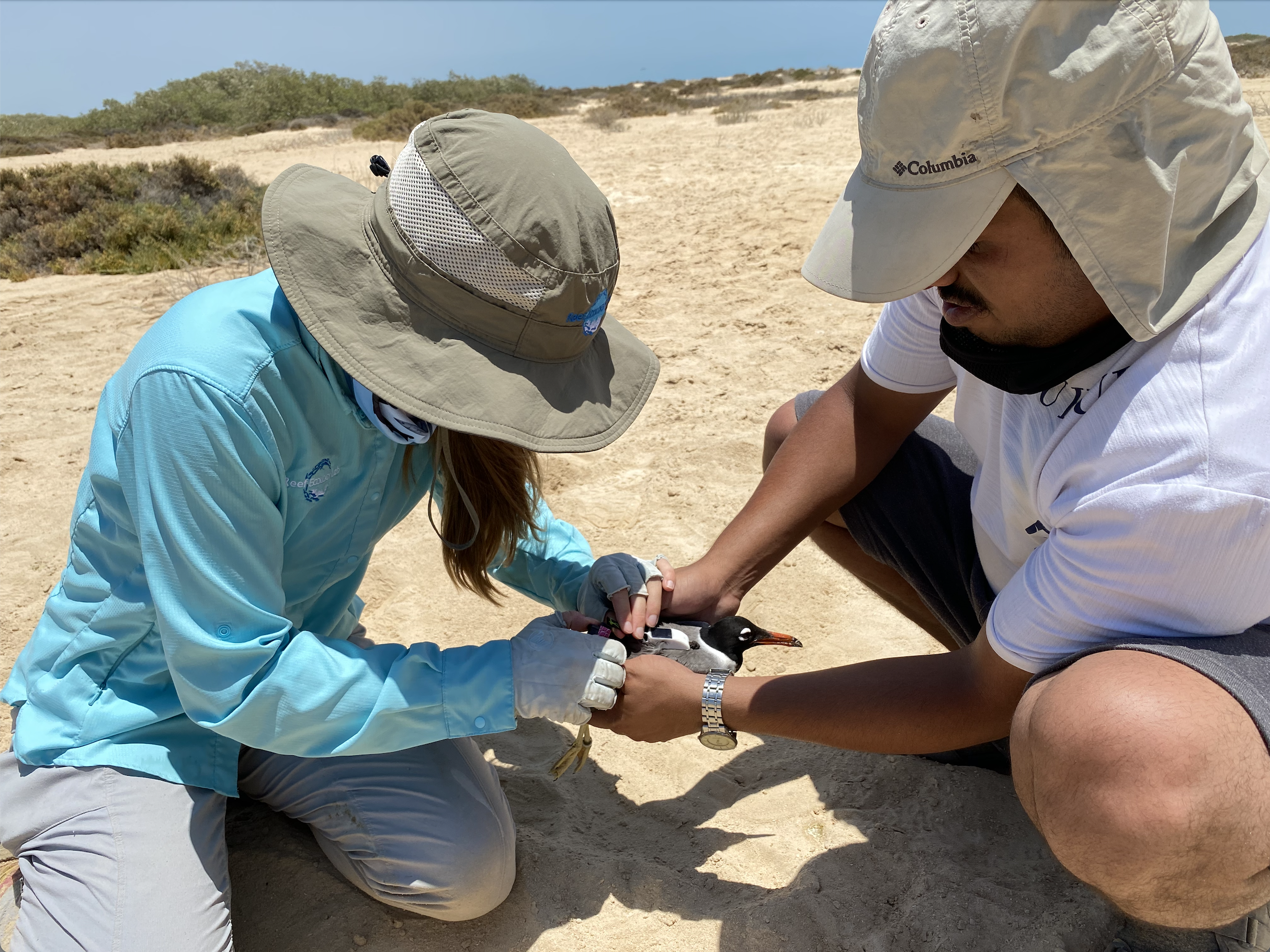
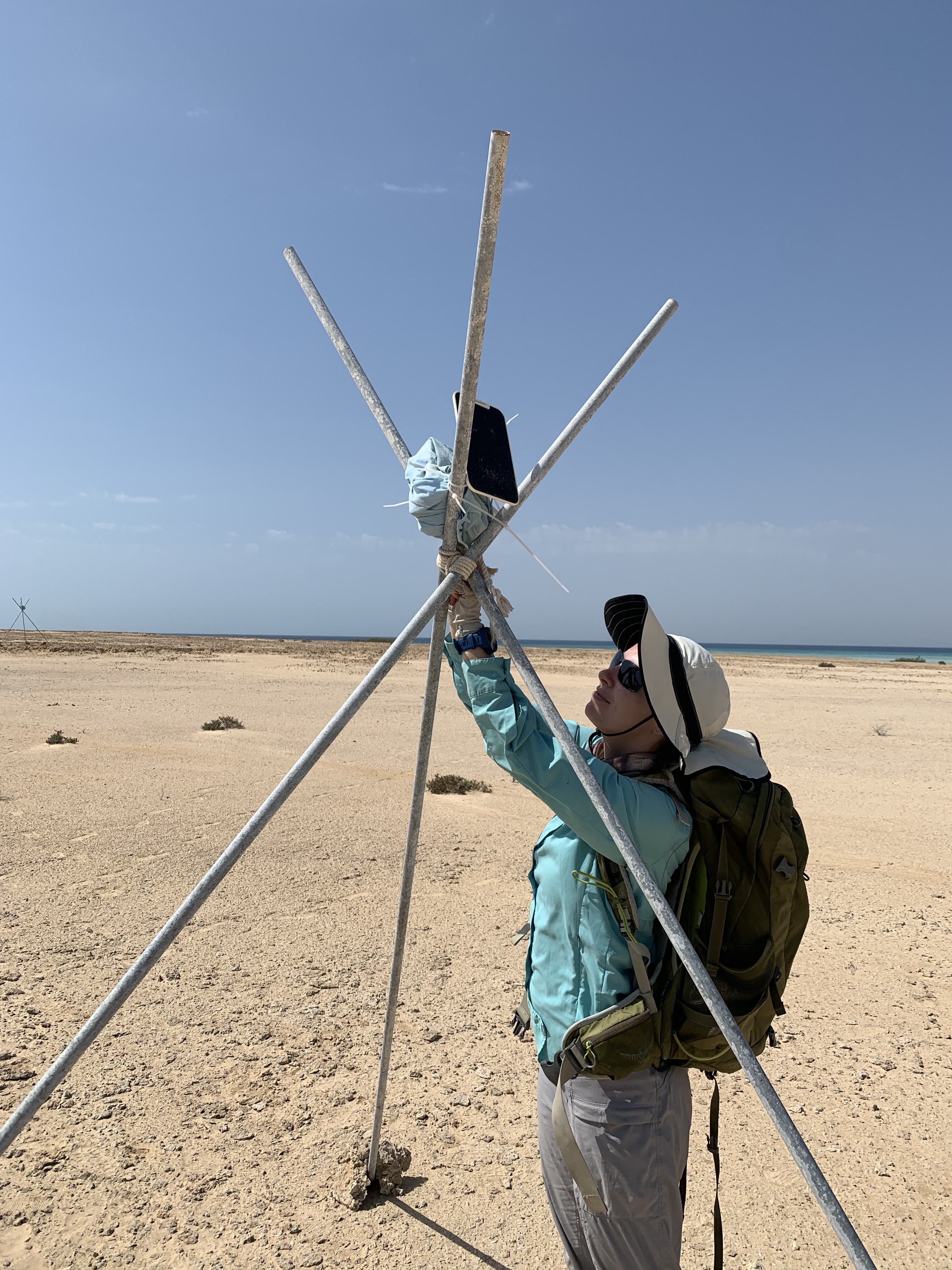
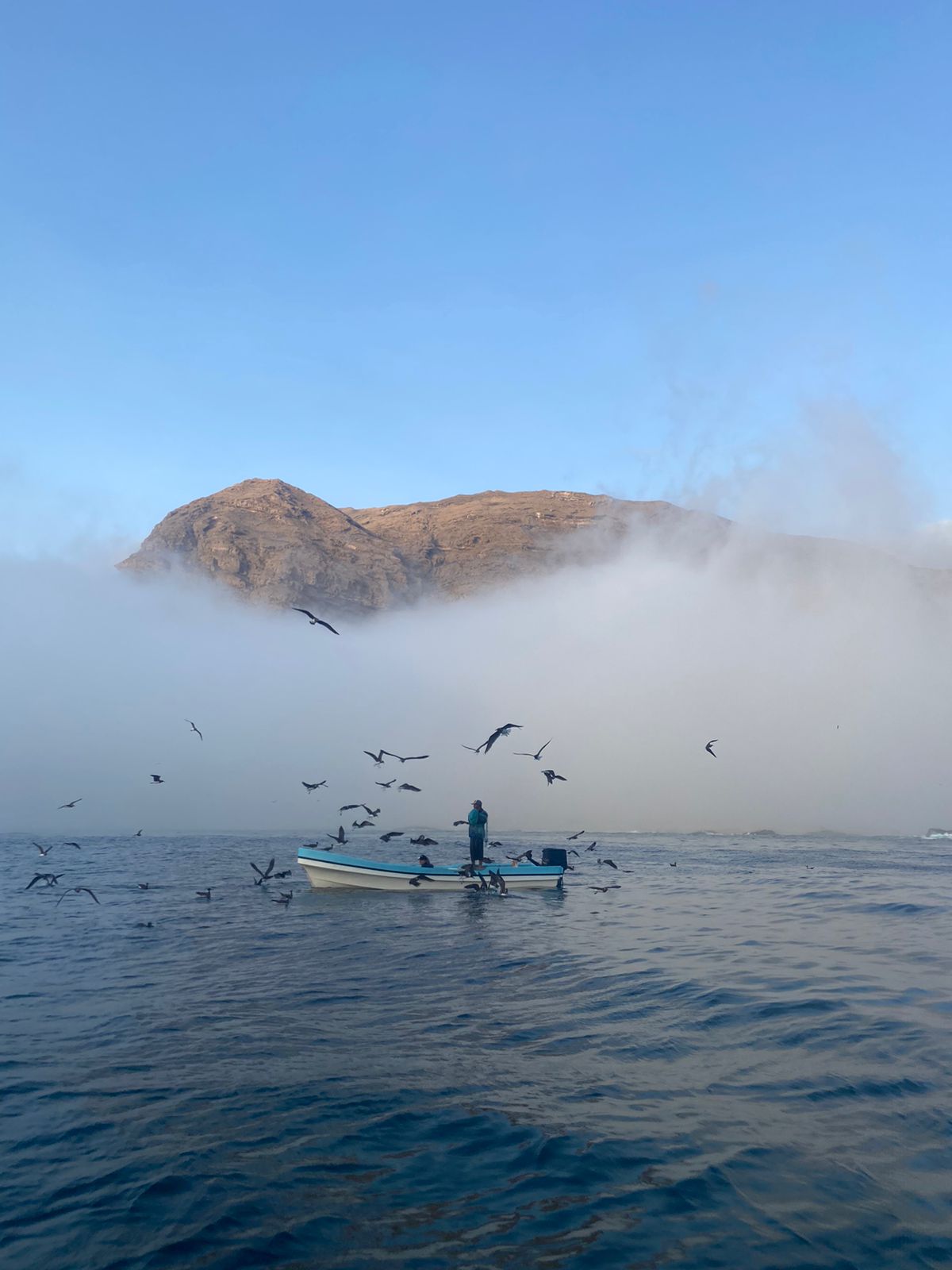
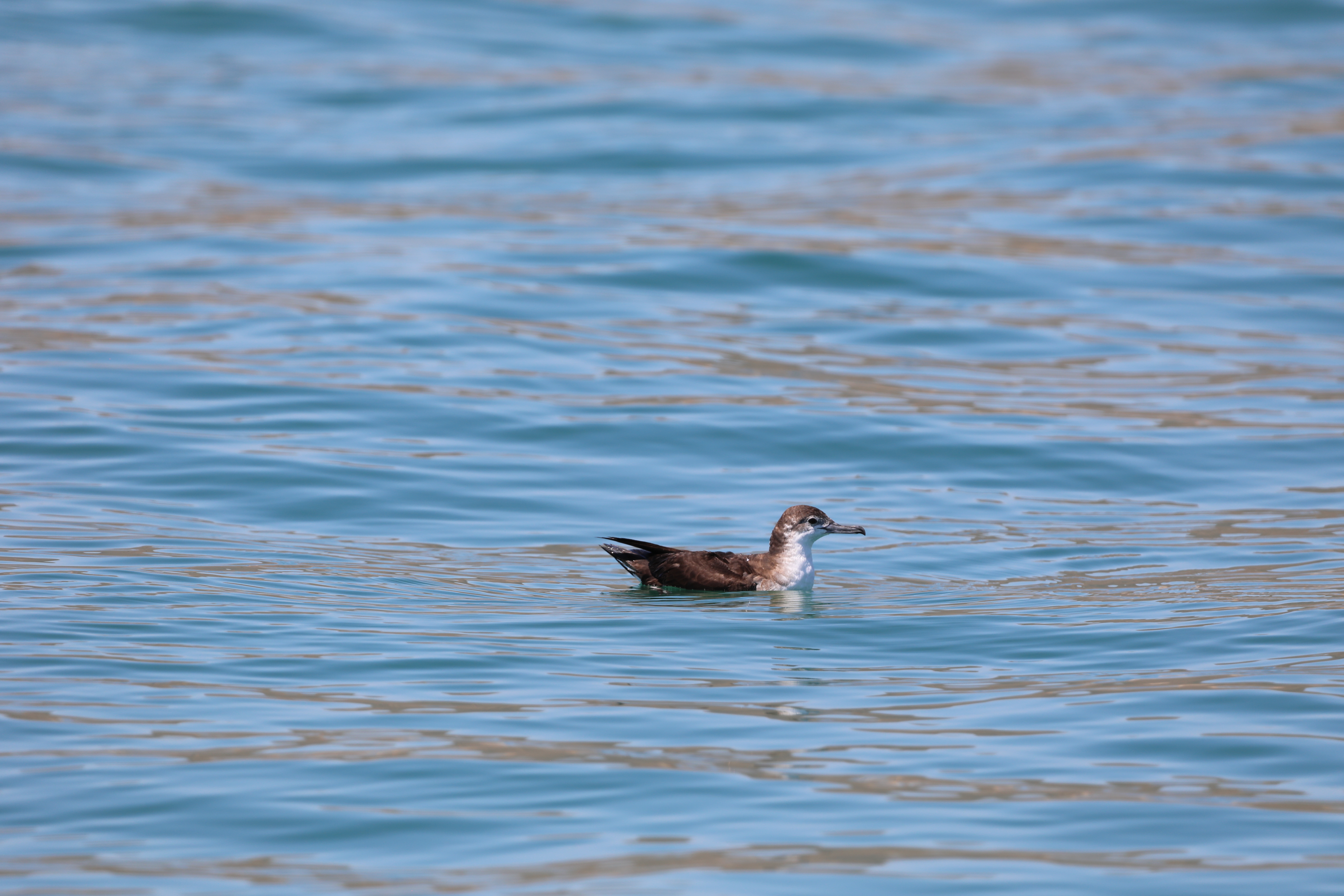
Tanabe, LK; Cochran, JEM; Berumen, ML (2023) Inter-nesting, migration, and foraging behaviors of green turtles (Chelonia mydas) in the central-southern Red Sea. Scientific Reports 13, 11222
Tanabe, LK; Cochran, JEM; Williams, CT; Garzon, F; Langner, U; Hardenstine, RS; Hawkes, LA; Brainard, RE; Eweida, AA; Marshall, PA; Berumen, ML (2023) Case report: tracking data from foraging hawksbill turtles in the northern Red Sea. Animal Biotelemetry 11, 1
Hardenstine, RS; He, S; Cochran, JEM; Braun, CD; Cagua, EF; Pierce, SJ; Prebble, CEM; Rohner, CA; Saenz-Agudelo, P; Sinclair-Taylor, TH; Skomal, GB; Thorrold, SR; Watts, AM; Zakroff, CJ; Berumen, ML (2022) Pieces in a global puzzle: Population genetics at two whale shark aggregations in the western Indian Ocean. Ecology and Evolution 12(1):e8492
Knochel, AM; Cochran, JEM; Kattan, A; Stevens, GMW; Bojanowksi, E; Berumen, ML (2022) Crowdsourced data reveal multinational connectivity, population demographics, and possible nursery ground of endangered oceanic manta rays in the Red Sea. Aquatic Conservation: Marine and Freshwater Ecosystems, 1– 13
Knochel, AM; Hussey, NE; Kessel, ST; Braun, CD; Cochran, JEM; Hill, G; Klaus, R; Checkchak, T; El Hassen, NME; Younnis, M; Berumen, ML (2022) Home sweet home: spatiotemporal distribution and site fidelity of the reef manta ray (Mobula alfredi) in Dungonab Bay, Sudan. Movement Ecology 10, 22
Cochran, JEM; Braun, CD; Cagua, EF; Campbell Jr, MF; Hardenstine, RS; Kattan, A; Priest, MA; Sinclair-Taylor, TH; Skomal, GB; Sultan, S; Sun, L; Thorrold, SR; Berumen, ML (2019) Multi-method assessment of whale shark (Rhincodon typus) residency, distribution, and dispersal behavior at an aggregation site in the Red Sea. PLoS ONE 14(9):e0222285

